Disclosure: Parks Canada covered my admission fee for many of these activities, but all opinions are my own.
When visiting a museum, have you ever wished you could touch and hold the artifacts? At Laurier House in Ottawa and several other national historic sites across Canada, you can—if you sign up for a Parks Canada white glove tour.
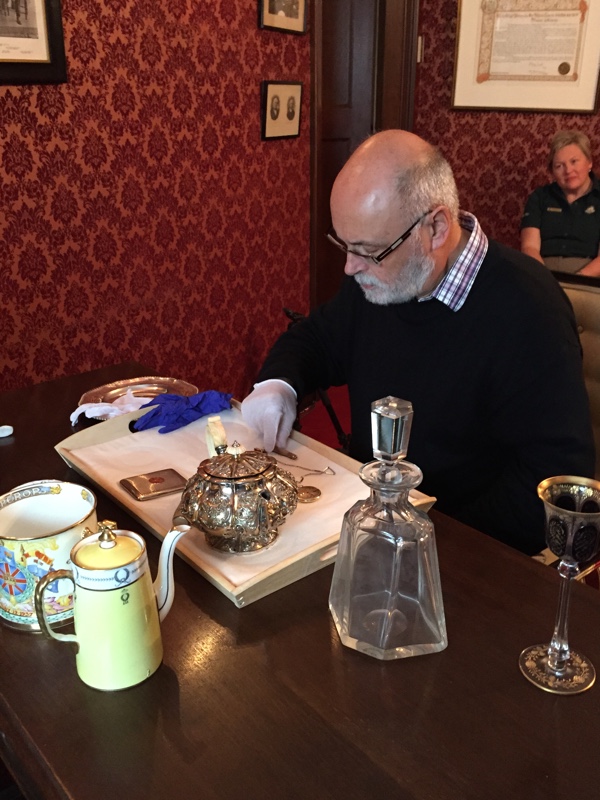
As the name implies, visitors on these tours wear gloves to carefully handle precious objects: white cotton gloves for most items and grippy blue vinyl gloves for breakable things, such as china. On my Laurier House tour, we were able to get up close and personal with several items that once belonged to one of the home’s most famous previous residents, former prime minister Mackenzie King.

The roster of artifacts changes regularly, to avoid too much wear and tear on the items. On the day I visited, we had the chance to handle a commemorative mug from King Edward VIII’s coronation, a cigarette case with Mackenzie King’s smokes still inside and a pocket watch engraved with the date 1914. (King’s famous crystal ball—which, according to the guides, he never used—is not one of the items on the tour.)
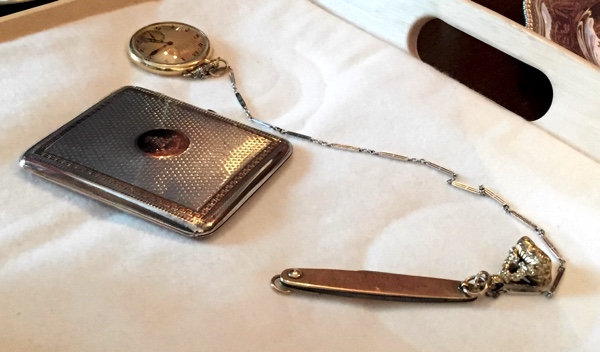
White glove tours are available at a number of national historic sites across the country. I’ve also taken one at the Alexander Graham Bell National Historic Site in Cape Breton, where I had the chance to examine one of the prolific inventor’s notebooks.
That’s just one of the ways Parks Canada helps bring its wide portfolio of parks and historic sites to life. Laurier House also offers a sweet picnic tea on the veranda, where you can nibble on brown butter-glazed shortbreads and other goodies while sipping Earl Grey like a proper Edwardian lady. You can also test your historical knowledge during Fact or Fiction nights, when guides pose quirky questions about King and Laurier. (Did King warm up his dinner party guests by challenging them to games of Duck Duck Goose? You’ll have to take the tour to find out.)
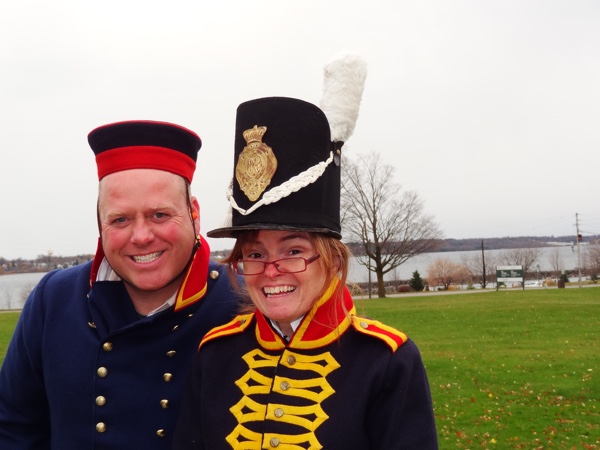
Meanwhile, at Fort Wellington National Historic Site in Prescott, you can dress up in a reproduction 19th-century military uniform, stroll over to a vintage cannon pointing toward the St. Lawrence River, touch a flame to the vent and jump about 10 feet in the air when the cannon fires with a thunderous roar. (No cannonballs are involved, so no worries about starting an international incident with the good folks of Ogdensburg, New York, directly across the river.)
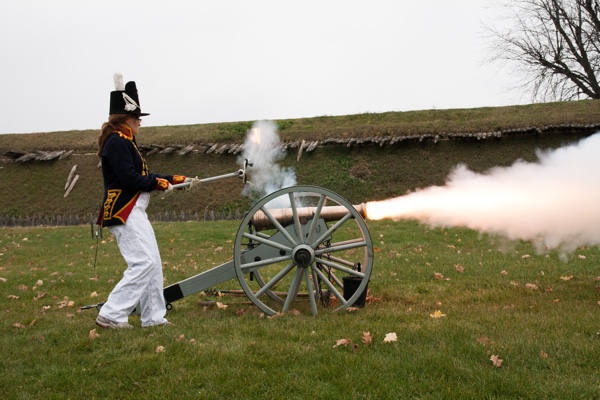
If you’d like to sleep overnight at a national park or historic site but you hate setting up tents, you’re in luck. At several spots close to Ottawa, you can book an oTENTik, the oddly named but well-equipped floored tents built and maintained by Parks Canada. Each tent includes sleeping space for six (watch your kids fight over the bunk beds), a table and chairs, solar-powered lighting, a propane barbecue and a picnic table.
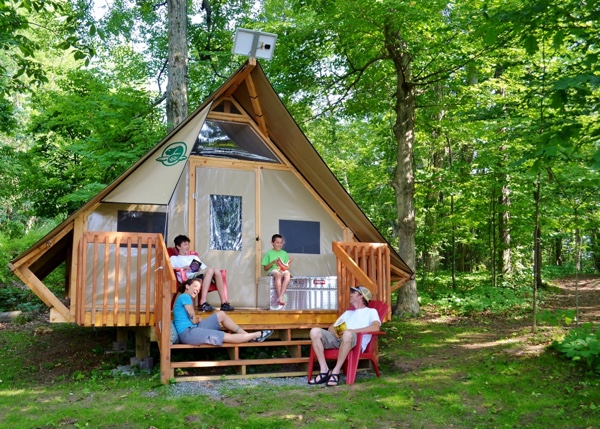
You’ll find oTENTiks in many national parks, such as Thousand Islands National Park near Mallorytown, where you can book one on shore or paddle to one on a nearby island. Several lockstations along the Rideau Canal—including Upper Nicholsons near Merrickville, Upper Beveridges near Port Elmsley, and Upper Brewers near Seeleys Bay—also offer oTENTiks for rent. But perhaps the most unusual nearby oTENTik spot is next to the Lachine Canal in Old Montreal—that one’s on my bucket list, but I haven’t had the chance to try it yet because it books up very quickly. (I have tried an oTENTik at Upper Beveridges; here’s my report.)
Be forewarned that oTENTiks aren’t “glamping.” Sure, they have a floor and bunk beds, but they don’t have running water, wi-fi or any of those other frills. You’re still camping!
Note: You’ll need to make advance reservations to try any of the activities described in this article. See the Parks Canada website for details.
Looking for more ideas for day trips and weekend getaways from Ottawa? Why not subscribe to my free weekly e-newsletter?
As the owner of Ottawa Road Trips, I acknowledge that I live on, work in and travel through the unceded, unsurrendered territory of the Algonquin Anishinaabeg Nation. I am grateful to have the opportunity to be present on this land. Ottawa Road Trips supports Water First, a non-profit organization that helps address water challenges in Indigenous communities in Canada through education, training and meaningful collaboration.
